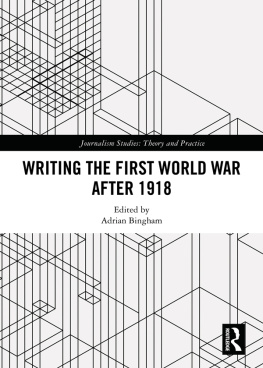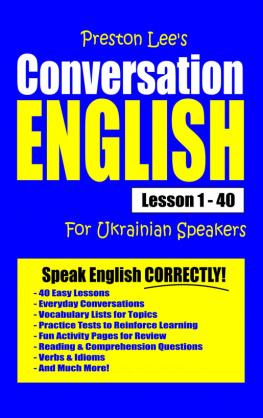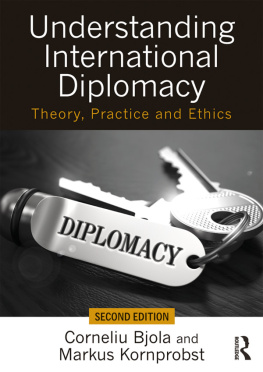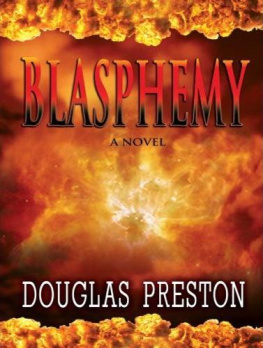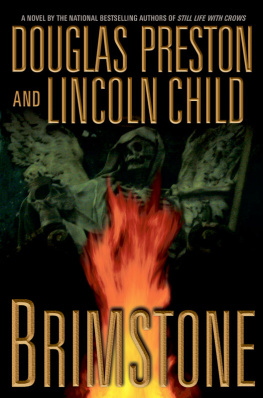First published in 1978 by Croom Helm Ltd
This edition first published in 2022
by Routledge
2 Park Square, Milton Park, Abingdon, Oxon OX14 4RN
and by Routledge
605 Third Avenue, New York, NY 10158
Routledge is an imprint of the Taylor & Francis Group, an informa business
1978 Croom Helm
All rights reserved. No part of this book may be reprinted or reproduced or utilised in any form or by any electronic, mechanical, or other means, now known or hereafter invented, including photocopying and recording, or in any information storage or retrieval system, without permission in writing from the publishers.
Trademark notice: Product or corporate names may be trademarks or registered trademarks, and are used only for identification and explanation without intent to infringe.
British Library Cataloguing in Publication Data
A catalogue record for this book is available from the British Library
ISBN: 978-1-03-201217-9 (Set)
ISBN: 978-1-00-319367-8 (Set) (ebk)
ISBN: 978-1-03-207557-0 (Volume 10) (hbk)
ISBN: 978-1-03-207558-7 (Volume 10) (pbk)
ISBN: 978-1-00-320766-5 (Volume 10) (ebk)
DOI: 10.4324/9781003207665
Publishers Note
The publisher has gone to great lengths to ensure the quality of this reprint but points out that some imperfections in the original copies may be apparent.
Disclaimer
The publisher has made every effort to trace copyright holders and would welcome correspondence from those they have been unable to trace.
1978 Croom Helm
Croom Helm Ltd, 2-10 St Johns Road, London SW11
British Library Cataloguing in Publication Data
General staffs and diplomacy before the Second World War.
1. World war, 1939-1945 Diplomatic history
2. Diplomacy History 20th century
3. Armies Staffs History 20th century
I. Preston, Adrian
3272 D748
ISBN 0-85664-650-4
First published in the United States 1978
by Rowman and Littlefield
81 Adams Drive
Totowa, New Jersey
ISBN 0-8476-6075-3
Printed and bound in Great Britain
by Redwood Burn Limited, Trowbridge and Esher
CONTENTS
Preface and Acknowledgements
D.C. Watt
2. The German Generals and the Outbreak of War 1938-1939 Gerhardt Weinberg
3. La Guerre de Longue Dure: Some Reflections on French Strategy and Diplomacy in the 1930s Robert Young
4. Stalin and the Red Army General Staff in the Thirties Albert Seaton
5. The Italian General Staff and the Coming of the Second World War John Whittam
6. The Unnecessary War? Military Advice and Foreign Policy in Great Britain, 1931-1939 David Dilks
Index
PREFACE AND ACKNOWLEDGEMENTS
The essays comprising this book were originally read to the Fourth Annual Military History Symposium held at the Royal Military College of Canada on 31 March and 1 April 1977. The theme of this Symposium, like that of its predecessors, was not a strictly military one and was consistent with the kind of approach which the Department of History has always taken to the study of warfare and social order. In some measure, this particular theme was inspired by Donald Watts Lees-Knowles Lectures, published in 1976 as Too Serious a Business, which struck us as being one of the most original and potentially one of the most provocative attempts to re-examine the origins of the Second World War, both in terms of the documents released by the Thirty-Year Rule and in terms of the post-war drift of Anglo-European politics.
The nature of the subject, as we visualised it from behind the stone-built walls of RMC, would call not so much for specialists in the technical development or planning functions of General Staffs as for contemporary historians whose grounding lay primarily in diplomacy and international politics. We hoped that they would examine the great questions of European security and order, both national and collective, as much through the eyes of Cabinets and Foreign Offices as through those of Chiefs of Staff.
Because we accepted, for the purposes of the Symposium, Donald Watts argument that the first two years of formal warfare (1939-41) before the entrance of the United States, Japan and Russia constituted a state of European civil war, we did not feel that the inclusion of the Canadian prewar experience was at all appropriate or necessary. Certainly, it would have interjected a bizarre and trifling element into what was otherwise, intellectually and geographically, a reasonably compact and unified theme.
Not all Canadians would have agreed with us. Yet it might have consoled them to know that Canadian scholars such as John Cairns, Sydney Aster, Neville Thompson, Peter Dennis, Lawrence Pratt and Ken Calder (originally working towards British and American doctorates, it might be noted) have done some of the best and freshest work in a field which, despite its closeness to us in time, is already showing signs of becoming dangerously overwritten. Because others bolder and better equipped have written extensively upon the historiography of the origins of World War II, we felt no editorial compulsion to add to the labours of Sisyphus.
As in the past, it is a pleasure to thank the Department of National Defence and the Canada Council for the assistance, financial and administrative, which made it possible for RMC to enjoy the company of its speakers and guests for several days. Sergeant MacLean and Mr Fawkes of the Senior Staff Mess, Sergeant Tupin and Mrs Hope of the Transportation Section and Mrs Karen Brown of the Department of History were especially helpful in making the Symposium run as smoothly as it did.
Adrian Preston
EUROPEAN MILITARY LEADERSHIP AND THE BREAKDOWN OF EUROPE, 1919-1939
D.C. Watt
The purpose of this paper is to resume the argument I advanced in the lectures I gave in Cambridge in 1973, which were republished by Maurice Temple Smith and California as Briand advanced his famous plan than British historians have so far allowed.
At this point I recalled the passage in J.M. in which he reminded his readers how before 1914 in many important economic and social respects there were no national barriers to the flow of money, travel, immigration, investment or information over all but a few of the most backward and tyrannical corners of the globe. It is true that the terms in which he couches this passage makes it clear that he is talking in terms of the reasonably wealthy educated upper and upper middle classes of the day, the aristocracy, the noblesse de la robe, the haute bourgeoisie, and the most successful of the new professional classes. I have called it a Harrods eye view of life. That magnificent London store then as now boasts that there is nothing it cannot order the world over given a client sufficient well-heeled. I recalled too that Keynes career continued until well into the post Second World War era; and that whereas historians have come to view the pre-1914 and the interwar years as two quite separate periods, they share to a considerable degree the same







